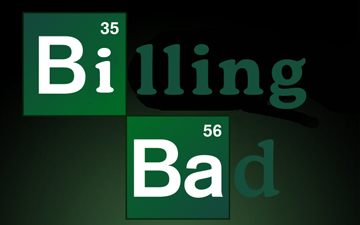Billing Bad: When accountants and clients disagree over accounting fees

A small claims court decision over billing offers lessons to accountants and clients
A RECENT CASE in a provincial small claims court between an accountant and their client shows what happens when billing goes bad. For accountants, it represents the worst case scenario — having to take a client to small claims court over unpaid bills — and offers lessons for both parties on retainer agreements and engagement letters.
The issue before the provincial small claims court was whether the accountant’s charges for accounting and tax advice were “overpriced.” The accountant helped the client transition their business from a sole proprietorship to a corporation, including the incorporation process itself, and the accountant subcontracted some accounting and bookkeeping work to another firm.
While provincial legislation does not allow Canadian accounting bodies to decide how much a member may charge for services, many provincial bodies offer the public some type of fee dispute resolution service, such as mediation or arbitration.
Fee disputes are among the diverse range of regulatory complaints and, according to CPA BC, “are often a product of poor communication on the part of the professional.” They represent the risk that a simple disagreement over billing can escalate into ethics complaints and spill over into media coverage with consequences for both the practitioner and the profession.
Specify the billing rate in the agreement
In the recent provincial small claims court case, the retainer agreement did not include a specific billing rate. Instead, under the heading “Fees,” the client agreed to pay the accountant’s “usual billing rate.” The judge found no evidence that the accountant told the client the actual rate before presenting an invoice charging $395 per hour. The judge also found, however, that the client did not say anything about the hourly rate.
Did the client ask for the hourly rate? Did the client ask for an estimate of the total billing. Did the client put an upper limit on the billing or ask to be contacted if the services were to exceed the estimate? The decision does not indicate any of these discussion occurred.
According to CPA BC, practitioners should “put your expected fees in writing … Your engagement letter should specify both the fee you’ve agreed on and the service you expect to perform. The more comprehensive your fee schedule, the more likely your client will understand what they’re paying for.”
Get a retainer — if you can
Even CPA BC agrees that it’s uncommon for a CPA to get a retainer up front, but “the practice is much more commonplace in some other professions.” Retainers are common in legal work, of course, and this case involved a legal dimension — namely, the incorporation process. A law firm would have demanded a nominal retainer. While the client had their own lawyer, the engagement did include some legal aspects, which may have warranted a retainer.
Specify the work requested and communicate throughout
CPA BC cautions practitioners to “reduce the element of surprise” when it comes to billing. The accountant came to court with a paper trail of emails detailing aspects of the work involved and conducted. It was apparent from the emails that several calls occurred between the parties.
Unlike the accountant, the client’s submissions to the court were “very brief,” and did not explain why they considered the accountant’s fees excessive. The client did not appear to question or express concern about the work conducted until after the invoice was received.
Even when the accountant subcontracted work to an accounting firm, the client did not express any concern, before or after, even though the subcontractor only itemized its tasks, not its hourly rate or total hours.
The value of second opinions
Most accounting regulators urge accountants to know their client before engagements and reflect upon their service. The same advice holds true for clients. In this case, the only evidence the client provided to the court to support their position was an email from another accountant.
According to the decision, that accountant said that “assistance with incorporation to determine or review share capital etc. generally cost around $1,000” and “preparation of financial statements and tax return is generally around $2,300”. (The total billed was close to $5,000.) There is no indication in the decision that the client shopped around prior to the engagement to ascertain reasonable rates.
Back in 2018, we reported that “the typical accounting firm charged $1,000 for a T2, whereas a bookkeeping firm charged $650.” But this case involved aspects of incorporation and the judge reasoned that there is “necessarily variation in any service that is charged at an hourly rate.”
Watch out for the fallout
Small claims court is a worst case scenario for accountants as it indicates that they have most likely lost a client. CPA BC warns its members that “If they believe your services are essential to their financial well-being, they are likely to stay as on clients — even if they could get a lower fee from someone else.”
There are other considerations to be weighed. There is the potential for unwanted media attention, which occurred in this case, and can be damaging not only to both parties but to third parties named in court documents. There is the possibility that an accounting regulator may consider the case not from a fees but an ethical perspective. And there is always a chance that the decision may reveal odd details, which happened in this case, when the judge noted that the accountant’s invoice included a mathematical error.
In the end, the judge ordered the client to pay the accountant just over $5,000 in debt and court costs. He found the accountant’s charges for accounting and tax advice were reasonable.
The accountant, not the client, proved their case on a balance of probabilities.
Colin Ellis is a regulatory communications professional and a contributing editor to Canadian Accountant.










(0) Comments